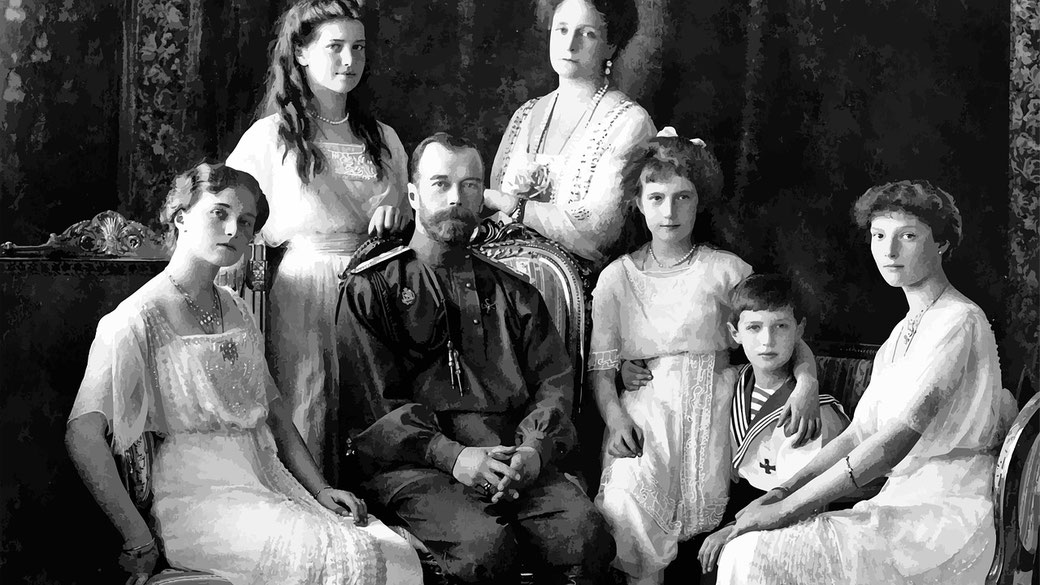Bloodlines and betrayals: The startling connection between the WWI leaders

By the time Europe entered war in 1914, many of the continent’s ruling monarchs belonged to the same extended family.
Queen Victoria of the United Kingdom, often referred to as the "Grandmother of Europe," had arranged dynastic marriages that linked the major royal houses of Britain, Germany, and Russia through blood and obligation.
Yet those very ties failed to prevent one of the most devastating wars in history. Instead, family ties gave way to diplomatic errors that prompted aggressive military threats and led to personal betrayals.
Dynastic Bonds and Early Strains
Queen Victoria's eldest daughter, also named Victoria, was born in 1840 and later married Crown Prince Frederick of Prussia.
Their son, Wilhelm II, became the last German Kaiser.
Victoria's eldest son, Edward VII, succeeded her on the British throne, and his son, George V, ruled during the First World War.
Her granddaughter, Alix of Hesse, married Nicholas II, the last Tsar of Russia.
By the early twentieth century, Victoria’s descendants occupied the thrones of Britain, Germany, and Russia.
The surviving letters that were exchanged between them in the years leading up to the war reveal quite a lot of personal warmth that was mixed with political tension.
In them, George, Wilhelm, and Nicholas addressed each other as “Georgie,” “Willy,” and “Nicky,” but their affection ultimately proved to be irrelevant when national interests clashed.
Even though they had had shared tutors, enjoyed frequent court visits, and attended the same royal functions in childhood, the three monarchs viewed the world through very different lenses.
Wilhelm II was often envious of Britain’s naval power and became increasingly unpredictable in his foreign policy.
After dismissing Otto von Bismarck in 1890, he began to embrace an increasingly aggressive stance that laid the groundwork for Weltpolitik, a strategy formally introduced in 1897 to assert German influence through colonial ventures and naval expansion.
His naval arms race with Britain undermined years of careful diplomacy and heightened tensions across Europe.
George V, in comparison, was bound by constitutional limits, and could do little to influence foreign policy directly, yet his government viewed Wilhelm’s actions as a threat.
Meanwhile, Nicholas II struggled to maintain authority in a Russia already facing turmoil.
His loyalty to Serbia and the strict alliance with France drew Russia into confrontation with Austria-Hungary and, by extension, Germany.
Escalation and Mobilisation
After the assassination of Archduke Franz Ferdinand in June 1914, the complex network of alliances that had been prepared over years triggered military mobilisation.
Urgent telegrams flowed between the royal cousins. In what became known as the "Willy-Nicky Telegrams," Nicholas and Wilhelm exchanged messages pleading for restraint.
On 29 July 1914, Nicholas begged Wilhelm to mediate and avoid mobilisation.
Wilhelm, fearing Russian advances, warned of war if mobilisation continued.
Within days, both countries had issued mobilisation orders. Germany declared war on Russia on 1 August, and on France on 3 August, following its prearranged military strategy.
Britain followed on 4 August, in response to Germany’s invasion of Belgium. The war began with monarchs who once vacationed together now leading empires that slaughtered each other’s citizens in numbers never seen before.
The outbreak of war was the end of any belief in family loyalty. Public opinion truned against monarchs who had foreign relatives.
George V quietly dropped his German titles and changed the royal house’s name from Saxe-Coburg and Gotha to Windsor on 17 July 1917.
That same year, he supported his government’s decision to deny asylum to his cousin Nicholas II and the Russian imperial family after the Bolsheviks seized power
Similarly, the British government feared domestic unrest and potential republican movements.
The Romanovs, who had been abandoned by their royal relatives, were executed by local Bolsheviks in July 1918, under orders from the Ural Soviet.
The decision to not intervene earlier to save him would trouble George for the rest of his life.
Monarchies in Collapse
In Germany, the war destroyed the monarchy entirely. After four years of devastating conflict, Wilhelm II abdicated on 9 November 1918 and fled to the Netherlands.
He lived in exile until his death in 1941, which mean that the once-proud Hohenzollern dynasty disappeared from public life.
In Britain, the Windsors have survived, but their authority shifted increasingly toward constitutional ceremonial roles.
Many historians have highlighted the sad irony at the heart of the First World War.
What began as an aristocratic chessboard of alliances ended in revolutions that triggered abdications and brought about the final decline of monarchy as Europe’s central authority.
What do you need help with?
Download ready-to-use digital learning resources
Copyright © History Skills 2014-2025.
Contact via email
With the exception of links to external sites, some historical sources and extracts from specific publications, all content on this website is copyrighted by History Skills. This content may not be copied, republished or redistributed without written permission from the website creator. Please use the Contact page to obtain relevant permission.





